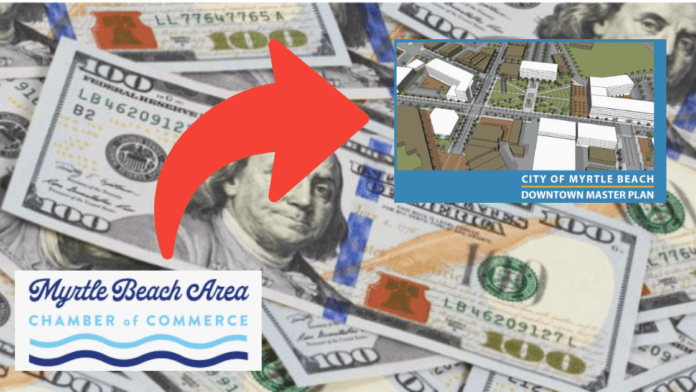As a result of a change in state law, Charleston County will now be able to convert more than $4 million in tourism taxes for affordable housing.
Will Myrtle Beach soon follow? Downtown tax subsidized, low income housing has been a top priority for Myrtle Beach Mayor Brenda Bethune and the Myrtle Beach Downtown Alliance.
Talks occurred ongoing last Summer about converting tourism advertising dollars to the city for downtown funding. The Myrtle Beach Area Chamber has pushed back against this idea to date.
The Myrtle Beach Area Chamber of Commerce takes in more than $54 million annually in tourist taxes. However, numbers clearly show that the tax expenditures are not producing an increase in tourists visiting the town. While numbers have ebbed and flowed, the trend of increased visitors is down over the past few years.
MEANWHILE, IN CHARLESTON S.C.
On top of more than $20 million in housing initiatives the county launched with federal funding, the conversion of tourism dollars would establish a housing trust fund.
Prior to 2023, state and local hotel taxes were used only to attract and serve tourists, which included advertising, supporting local venues and events that attracted overnight guests, and even boosting police budgets.
According to last year’s tax data, local governments can use up to 15 percent of accommodations taxes to fund “workforce housing” efforts.
Venues and events that rely on the A-tax would not be taxed, but unbudgeted reserve funds would be used instead.
According to Councilman Kylon Middleton, this would enshrine a workforce or affordable housing trust fund in the county budget.
If the legislation proves successful, Sen. Tom Davis, R-Beaufort, who sponsored the bipartisan legislation signed into law in May, has said he hopes it will be extended.
Greenville directed A-tax money to existing housing efforts the same month the law into effect, which was supported by Charleston and Mount Pleasant.
The county plans to structure and manage a housing trust fund with the South Carolina Community Loan Fund – which was previously the Lowcountry Housing Trust before expanding statewide.
A land bank will be created by the county to support affordable housing development using $2.5 million in federal funding. A qualified partner is expected to be contracted by the county for the initial program, which will be developed by the county’s staff and lawyers.
A-tax money and federal American Rescue Plan Act funds have allowed the county to address the housing affordability crisis without tapping local property taxes.
In 2020, Charleston voters rejected a plan for a modest property tax increase to fund affordable housing efforts. The referendum narrowly failed with 50.88 percent opposed. In 2022, council decided not to hold another referendum.
Charleston County’s average rent increased by 38 percent from mid-2020 to last July, a larger increase than all but 25 other counties in the U.S.
Single-family home prices in the county rose from under $400,000 at the start of 2020 to $635,000 in January, according to the Charleston Trident Association of Realtors.
County Councilman Brantley Moody said at a Feb. 8 meeting, “The math just doesn’t work without incentives.”
While the county does not build or manage affordable housing, it assists nonprofits and for-profits in doing so. As a result of the federal government’s response to the COVID pandemic, the county set aside $20 million for housing. Most of the funds were allocated to grants or loans to housing developers.


